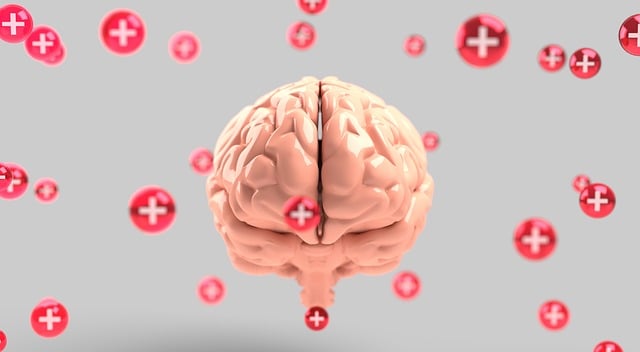In today's fast-paced world, mental wellness is crucial but often hindered by stigma and limited access to professional help. Lakewood Trauma Therapy introduces self-assessment tools that empower individuals to understand their emotional state through targeted questions and evidence-based practices. These tools, focused on domains like anxiety, depression, and trauma recovery, offer resources for resilience building, emotional regulation, and self-care strategies. By integrating Lakewood Trauma Therapy principles, these assessments provide deeper insights into mental health, particularly beneficial for trauma survivors, while promoting early intervention and holistic patient care among professionals.
Mental wellness self-assessment tools play a pivotal role in empowering individuals to take charge of their mental health. As awareness and understanding of psychological well-being increase, there is a growing need for accessible and effective assessment methods. This article explores the development of such tools, focusing on a step-by-step design process and the integration of Lakewood Trauma Therapy for comprehensive mental health support. By leveraging these strategies, we aim to enhance self-awareness and facilitate timely interventions.
- Understanding the Need for Self-Assessment Tools in Mental Wellness
- Designing Effective Self-Assessment Tools: A Step-by-Step Approach
- Integrating Lakewood Trauma Therapy into Self-Assessment Tools for Comprehensive Mental Health Support
Understanding the Need for Self-Assessment Tools in Mental Wellness

In today’s fast-paced world, mental wellness is a cornerstone of overall health and well-being. However, many individuals struggle to recognize and address their mental health concerns due to stigma, lack of awareness, or limited access to professional services. This is where self-assessment tools play a pivotal role. These tools empower individuals to take an active role in understanding their emotional and psychological state, serving as a crucial first step towards seeking appropriate support or initiating personal growth journeys.
At Lakewood Trauma Therapy, we recognize that traditional therapy isn’t the only path to healing. Self-assessment tools can be particularly beneficial for those looking to enhance their mental wellness proactively. By offering resources that focus on social skills training, resilience building, and emotional regulation, these tools help individuals gain valuable insights into their strengths and areas of improvement. This proactive approach fosters a sense of agency, enabling folks to navigate life’s challenges with greater confidence and adaptability.
Designing Effective Self-Assessment Tools: A Step-by-Step Approach

Designing Effective Self-Assessment Tools for Mental Wellness is a meticulous process that requires careful consideration and a structured approach. The first step involves identifying the specific mental health domains or symptoms to be assessed, such as anxiety, depression, or trauma recovery. This stage is crucial as it determines the tool’s focus and ensures it aligns with evidence-based practices, like those offered at Lakewood Trauma Therapy.
Next, create a comprehensive list of relevant questions or statements tailored to each domain. These should be clear, unbiased, and culturally sensitive, avoiding any language that could exacerbate the Mental Illness Stigma Reduction Efforts. Ensure the questions range from simple yes/no answers to more complex scales measuring severity and impact over time. The goal is to capture subtle nuances while maintaining user-friendliness. Incorporating Depression Prevention strategies through positive affirmations or coping mechanism prompts can also enhance the tool’s effectiveness, encouraging users to reflect on their emotional well-being.
Integrating Lakewood Trauma Therapy into Self-Assessment Tools for Comprehensive Mental Health Support

Integrating Lakewood Trauma Therapy into self-assessment tools offers a promising approach to enhance mental health support and care. This therapeutic method, known for its effectiveness in addressing complex trauma, can significantly benefit individuals seeking comprehensive mental wellness assessments. By incorporating elements of Lakewood Trauma Therapy, these tools can provide a deeper understanding of an individual’s emotional well-being, especially those who may have experienced traumatic events.
Self-assessment platforms designed with this therapy model in mind can help users identify and process past traumas, resulting in improved self-awareness. This is particularly crucial for mental health professionals who often deal with clients at risk of trauma-related disorders. Incorporating such tools into their practice facilitates a holistic approach to patient care, enhancing traditional Risk Management Planning for Mental Health Professionals. Furthermore, raising Mental Health Awareness through these platforms encourages individuals to prioritize Self-Care Practices and seek support early on.
Mental wellness self-assessment tools are indispensable resources for individuals seeking to understand and manage their emotional well-being. By following a structured approach, as outlined in this article, developers can create effective tools that empower users. Integrating evidence-based methods like Lakewood Trauma Therapy ensures comprehensive mental health support, addressing past traumas and promoting resilience. With continuous innovation and research, these tools have the potential to significantly enhance access to mental wellness care and improve overall well-being in today’s society.














